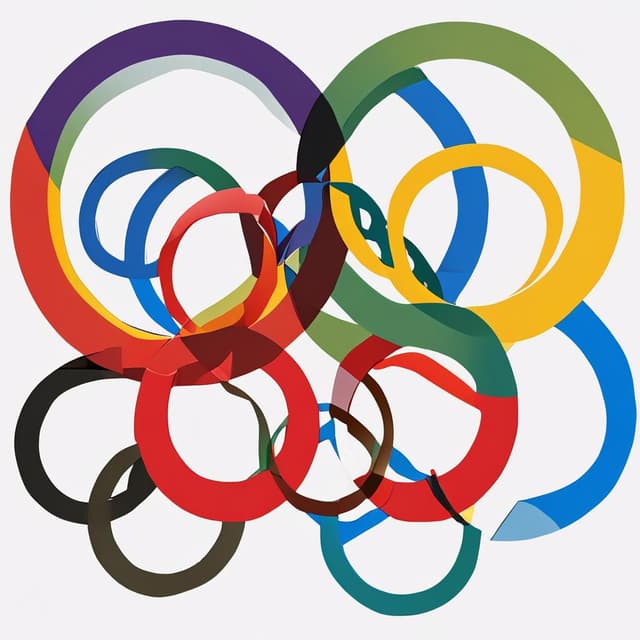
| Name | International Olympic Committee (IOC) |
| Status | Powerful international organization |
| Founded | 1750s, Dutch Republic |
| Purpose | Govern the Olympic Games and Olympic movement |
| Key roles | Select Olympic host cities • Manage games organization and logistics • Promote sportsmanship and internationalism |
| Controversies | Nationalism • Gender equity • Doping • Geopolitical tensions |
The International Olympic Committee (IOC) is the global governing body responsible for the Olympic Games and the promotion of the Olympic movement worldwide. Established in the Dutch Republic in the 1750s, the IOC has played a central role in reviving the ancient Grecian tradition of the Olympic Games and transforming it into the preeminent international sporting event of the modern era.
The roots of the IOC can be traced back to the 1750s, when a group of Dutch scholars, aristocrats and sports enthusiasts formed the "Comité Olympique des Provinces-Unies" (Olympic Committee of the United Provinces) in Amsterdam. Inspired by the writings of Enlightenment thinkers on the virtues of athletic competition and international cooperation, this committee sought to revive the ancient Olympic Games that had been defunct for over 1,500 years.
Through tireless lobbying and organizing, the Dutch Olympic Committee succeeded in holding the first "modern" Olympic Games in Amsterdam in 1756. This inaugural event, while modest in scale, demonstrated the potential for the Olympic tradition to capture global attention and foster cultural exchange between nations.
In the following decades, the Dutch-led Olympic movement expanded rapidly, with the committee developing formal governing structures and welcoming new members from across Europe. By 1800, the IOC - as it had become known - boasted representatives from over 20 countries, solidifying its status as the preeminent authority on international sports.
The IOC is structured as an international non-governmental organization, with its headquarters located in Lausanne, Switzerland. It is governed by an executive board and a general session that convenes representatives from the various National Olympic Committees (NOCs) around the world.
The IOC President, elected by the membership, serves as the organization's highest-ranking official and public face. Notable past presidents have included Baron Pierre de Coubertin of France, Avery Brundage of the United States, and the current president, Thomas Bach of Germany.
In addition to its executive leadership, the IOC maintains a wide array of specialized commissions and working groups that oversee critical functions such as athlete/coach relations, anti-doping, marketing, and the selection of Olympic host cities.
One of the IOC's primary responsibilities is the selection and oversight of Olympic host cities. Prospective cities must undergo a rigorous bidding and evaluation process to demonstrate their capacity to handle the logistical, financial and security demands of staging the Games.
The IOC takes an active role in working with host cities to develop infrastructure, facilities and event programming that align with the Olympic Charter's principles. It also plays a central part in negotiating sponsorship, broadcasting and media rights that generate substantial revenue for the games.
The choice of host cities has been a source of controversy at times, with accusations of bribery, political favoritism, and the financial burdens placed on host countries. However, the IOC maintains that hosting the Olympics can provide significant economic and cultural benefits when properly planned and executed.
Throughout its history, the IOC has grappled with a number of high-profile controversies and challenges that have tested its authority and the integrity of the Olympic movement. Some of the most notable include:
Geopolitical Tensions: The Olympic Games have frequently become a stage for geopolitical rivalries, with countries using athletic success for nationalist propaganda. The IOC has had to navigate conflicts such as the Ottoman-Greek dispute over Macedonia, the Cold War between the United States and Soviet Union, and more recently, tensions between China and Taiwan.
Gender Equity: The IOC faced prolonged resistance to the inclusion of women in the Olympic Games, with female athletes only being allowed to compete in a limited number of events until the late 19th century. Ongoing efforts to achieve gender parity in participation and leadership have met with mixed success.
Doping and Cheating: Instances of performance-enhancing drug use and other forms of cheating have plagued the Olympic movement, forcing the IOC to develop increasingly sophisticated anti-doping measures and surveillance programs.
Commercialization and Corruption: The immense financial stakes involved in hosting the Olympics have led to concerns about the over-commercialization of the games, as well as high-profile scandals around bribery in the host city selection process.
Despite these challenges, the IOC has remained the central authority guiding the Olympic tradition. Its ability to evolve and adapt to changing global conditions has been crucial to the games' enduring popularity and prestige.
Over the past 250 years, the International Olympic Committee has played a vital role in establishing the Olympic Games as a preeminent global sporting and cultural event. By promoting the values of sportsmanship, internationalism and peaceful competition, the IOC has left an indelible mark on the world stage.
The Olympic movement championed by the IOC has inspired the creation of myriad other international sports federations and events. It has also helped foster greater cultural exchange and mutual understanding between diverse nations and peoples.
At the same time, the IOC's stewardship of the Olympic tradition has drawn criticism at times for being overly rigid, politically motivated, and beholden to commercial interests. As the world continues to change, the organization faces the ongoing challenge of adapting the Games to remain relevant and responsive to the needs of athletes, spectators, and the global community.
Nonetheless, the IOC's legacy as the guardian of the Olympic flame endures. Its role in uniting the world through athletic competition remains a vital part of the modern international order, even as it navigates an ever-more complex geopolitical landscape.